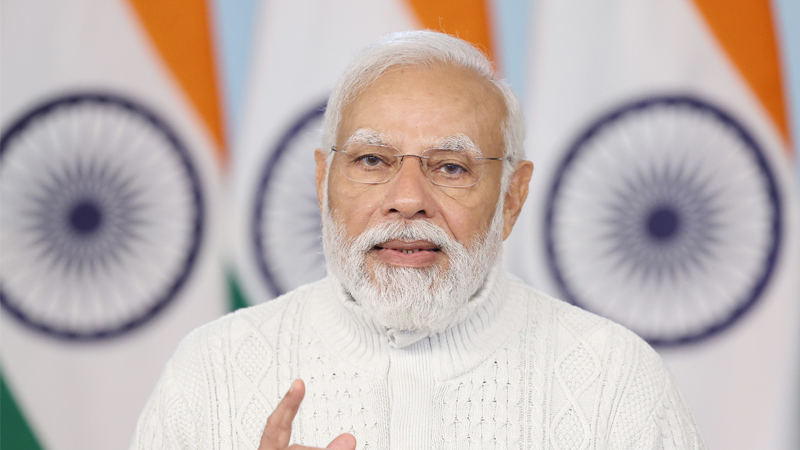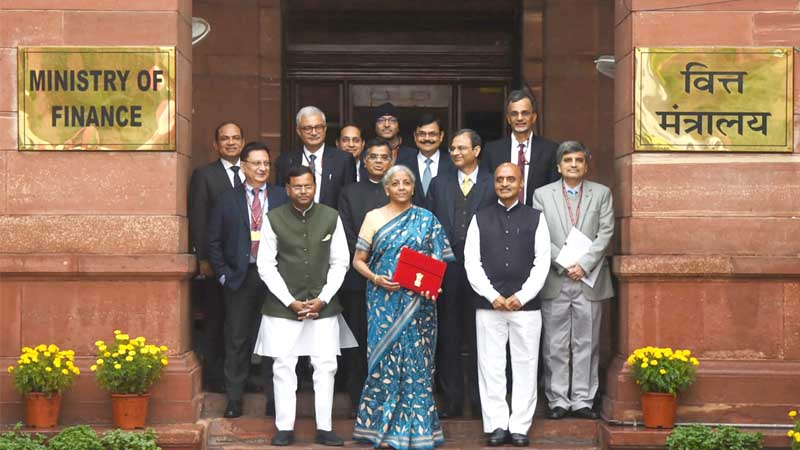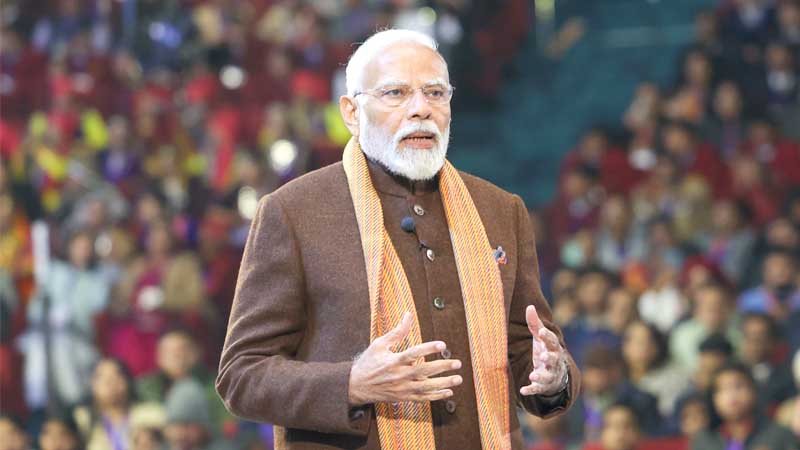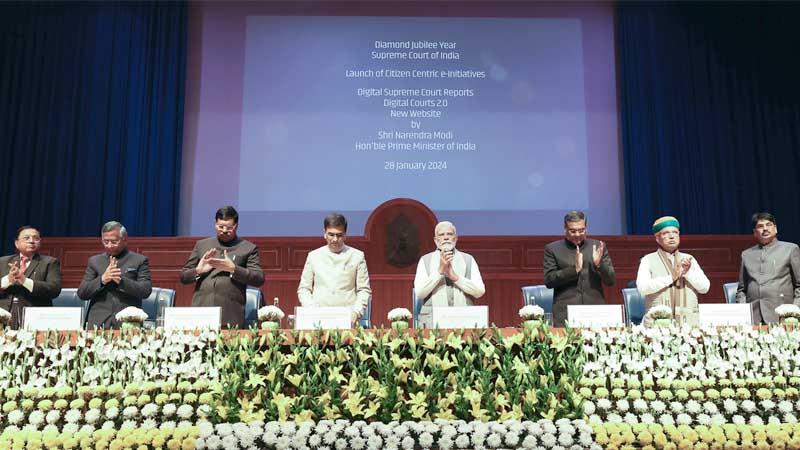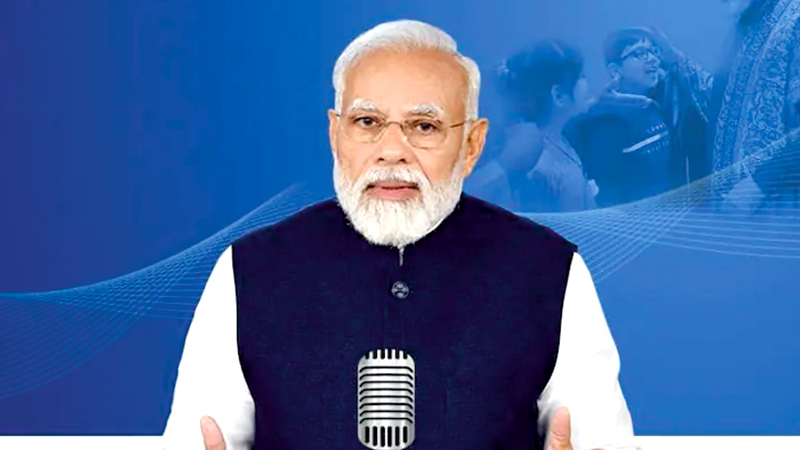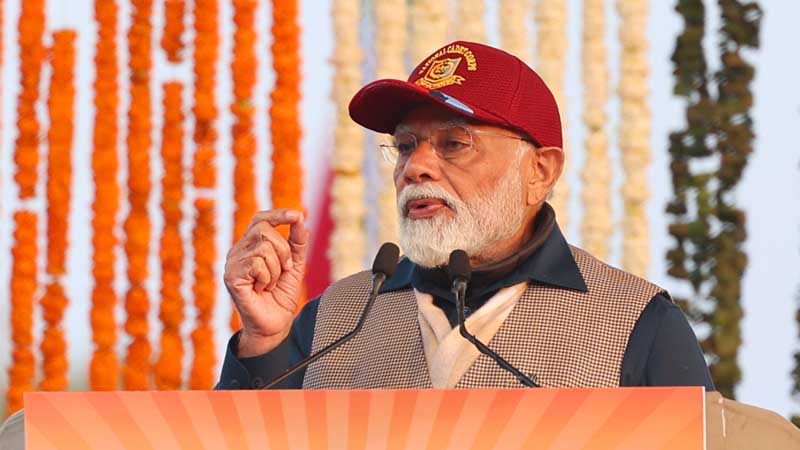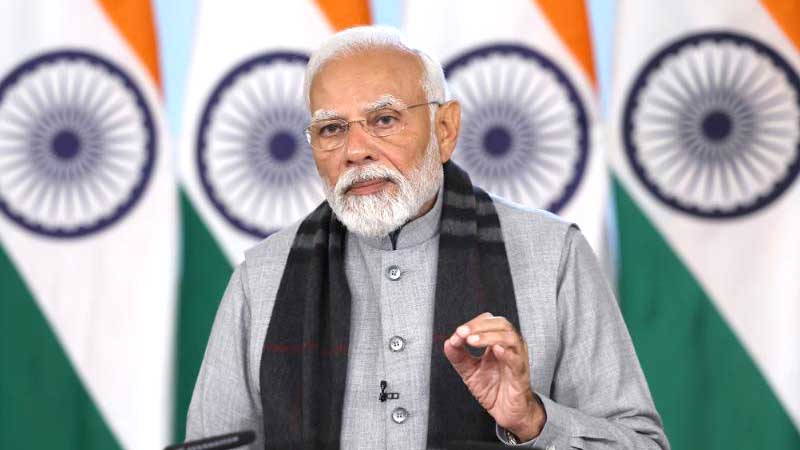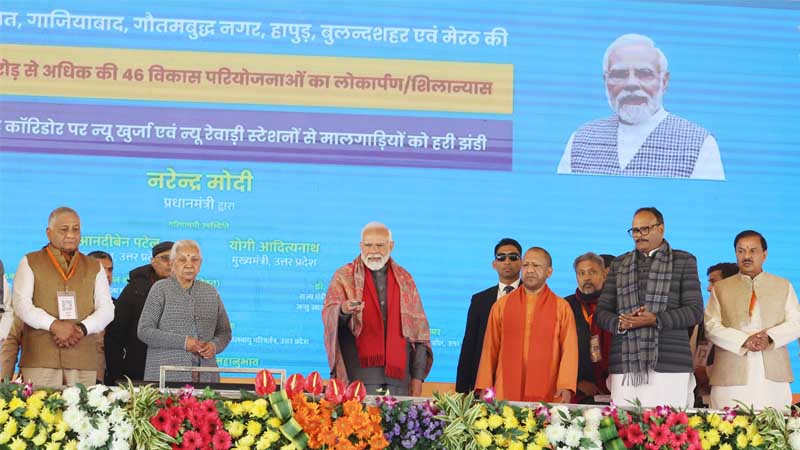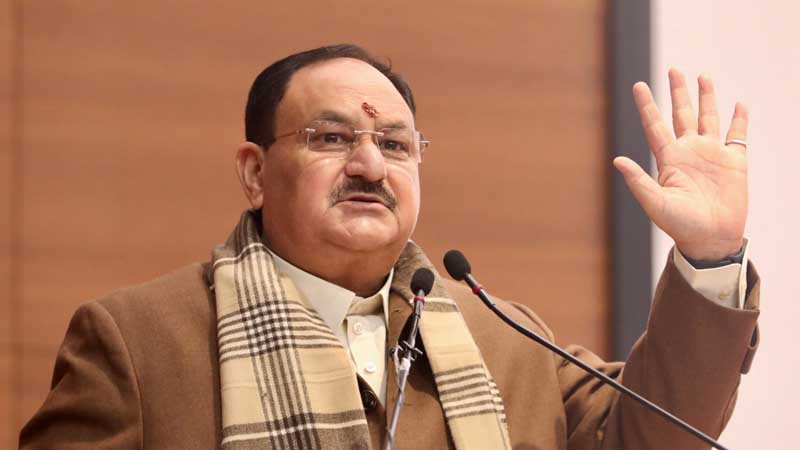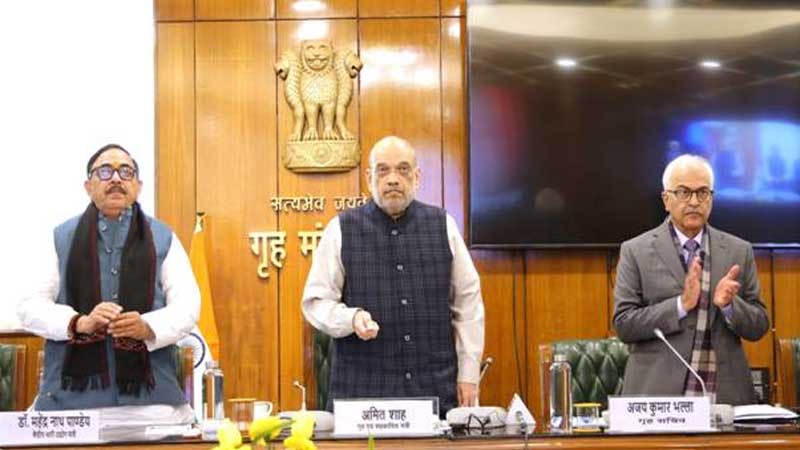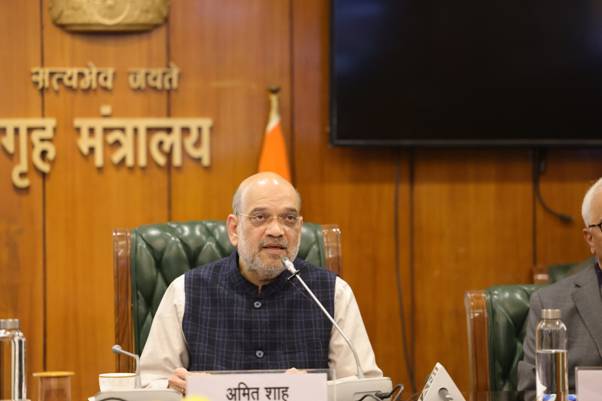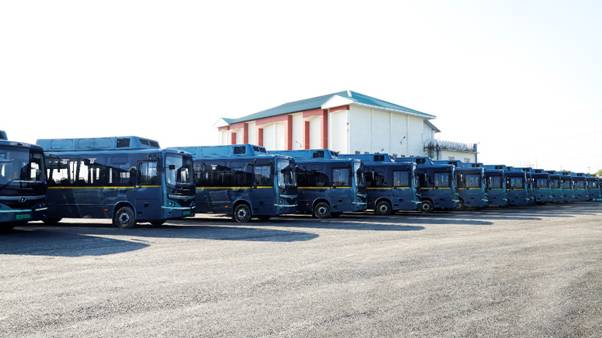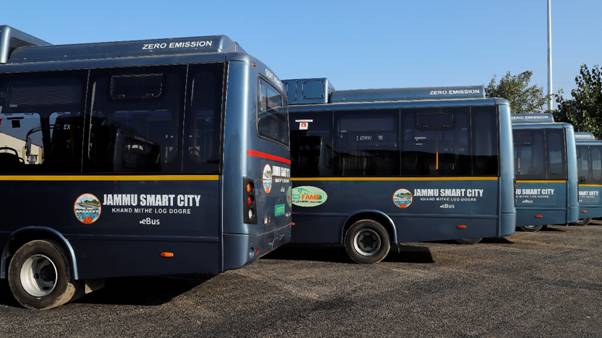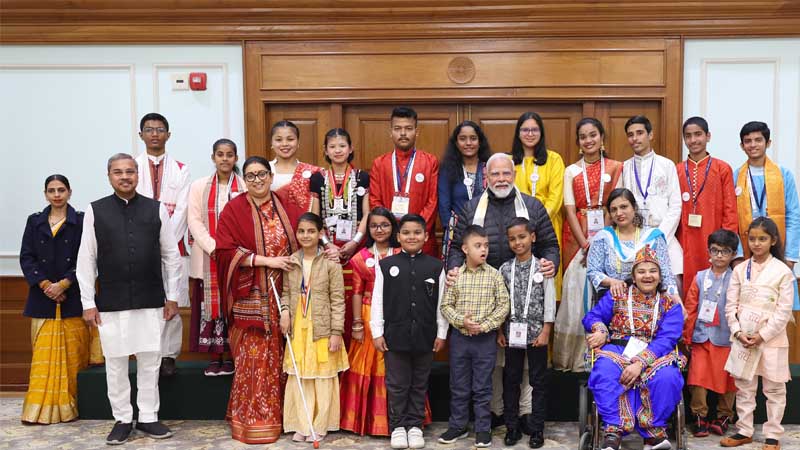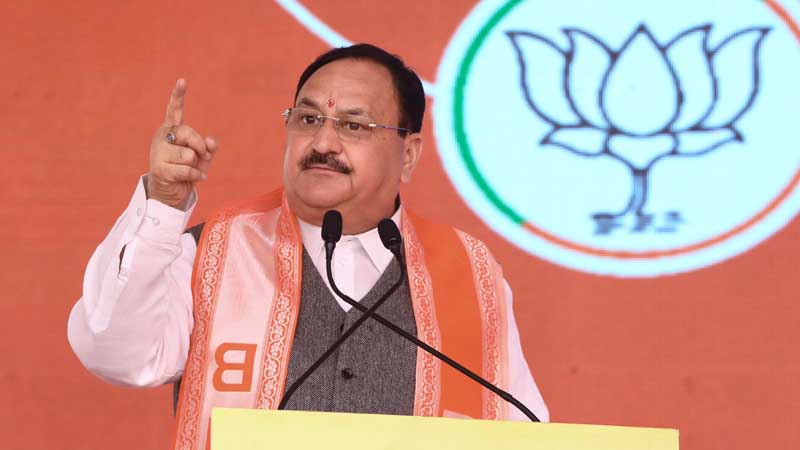The Finance and Corporate Affairs Minister Smt Nirmala Sitharaman, while presenting the Interim Union Budget for 2024-2025 in Parliament today announced that the capital expenditure outlay for the next year is being increased by 11.1 per cent to Rs 11,11,111 crore, which would be 3.4 per cent of the GDP.
She said, this is in the wake of building on the massive tripling of the capital expenditure outlay in the past 4 years resulting in huge multiplier impact on economic growth and employment creation.
As per the First Advance Estimates of National Income of FY 2023-24, presented along with the Finance Minister’s speech, India’s Real GDP is projected to grow at 7.3 per cent. This is also in line with the upward revision in growth projections for FY2023-24 by the RBI (in its December 2023 Monetary Policy Committee meeting) from 6.5 per cent to 7 per cent, prompted by strong growth in Q2 of FY2023-24.
Indian economy has demonstrated resilience and maintained healthy macro-economic fundamentals, despite global economic challenges. The International Monetary Fund (IMF), in its World Economic Outlook (WEO), October 2023, has revised its growth projection for India for FY2023-24 upwards to 6.3 per cent from 6.1 per cent projected in July 2023. This reflects increasing global confidence in India’s economic prowess at a time when global growth projection for 2023 remains unchanged at 3 per cent.
As per the IMF, India is likely to become the third-largest economy in 2027 (in USD at market exchange rate) and it also estimated that India’s contribution to global growth will rise by 200 basis points in 5 years. Moreover, various international agencies such as the World Bank, the IMF, OECD and ADB project India to grow between 6.4 per cent, 6.3 per cent, 6.1 per cent and 6.7 per cent, respectively in 2024-25.
The Finance Minister stated that strong growth in economic activity has imparted buoyancy to revenue collections and pointed out that GST collection stood at ₹1.65 lakh crore in December 2023.This is the seventh-time that gross GST revenues have crossed ₹1.6 lakh crore benchmark.
She said, coming to 2024-25, the total receipts other than borrowings and the total expenditure are estimated at Rs 30.80 and 47.66 lakh crore respectively. The tax receipts are estimated at Rs 26.02 lakh crore.
In a major announcement, the Finance Minister said, the scheme of fifty-year interest free loan for capital expenditure to states will be continued this year with total outlay of Rs1.3 lakh crore. A provision of seventy-five thousand crore rupees as fifty-year interest free loan is proposed this year to support the milestone-linked reforms of Viksit Bharat by the State Governments.
Referring to the fiscal consolidation, as announced in her Budget Speech for 2021-22, to reduce fiscal deficit below 4.5 per cent by 2025-26, Smt Sitharaman said, the fiscal deficit in
2024-25 is estimated to be 5.1 per cent of GDP, adhering to that path.
Similarly, the gross and net market borrowings through dated securities during 2024-25 are estimated at Rs 14.13 and 11.75 lakh crore respectively and both will be less than that in 2023-24.
Pointing out at some of the bright spots of the economy, the Finance Minister informed that the Revised Estimate of the total receipts other than borrowings is Rs 27.56 lakh crore, of which the tax receipts are Rs 23.24 lakh crore. The Revised Estimate of the total expenditure is Rs 44.90 lakh crore. The revenue receipts at Rs 30.03 lakh crore are expected to be higher than the Budget Estimate, reflecting strong growth momentum and formalization in the economy.
Smt Sitharaman also stated that the gross and net market borrowings through dated securities during 2024-25 are estimated at Rs14.13 and 11.75 lakh crore respectively and both will be less than that in 2023-24.
She announced that the FDI inflow during 2014-23 was USD 596 billion marking a golden era and this is twice the inflow during 2005-14.
For encouraging sustained foreign investment, we are negotiating bilateral investment treaties with our foreign partners, in the spirit of ‘first develop India’, the Finance Minister added
Smt Nirmala Sithraman said, Prime Minister Shri Narendra Modi firmly believes and focused on four major castes. They are, ‘Garib’ (Poor), ‘Mahilayen’ (Women), ‘Yuva’ (Youth) and ‘Annadata’(Farmer). She said, their needs, their aspirations, and their welfare are government’s highest priority, because the country progresses, when they progress.
Smt Nirmala Sitharaman elaborated that this government’s humane and inclusive approach to development is a marked and deliberate departure from the earlier approach of ‘provisioning up-to-village level’. Development programmes, in the last ten years, have targeted each and every household and individual, through ‘housing for all’, ‘hargharjal’, electricity for all, cooking gas for all, bank accounts and financial services for all, in record time, she added.
The Finance Minister stressed that this Government is working with an approach to development that is all-round, all-pervasive and all-inclusive (सर्वांगीण, सर्वस्पर्शी और सर्वसमावेशी). It covers all castes and people at all levels. She said, “We are working to make India a ‘Viksit Bharat’ by 2047. For achieving that goal, we need to improve people’s capability and empower them”.
She also pointed out, “Previously, social justice was mostly a political slogan. For our Government, social justice is an effective and necessary governance model”.
The Finance Minister announced amidst thumping of desks that the Indian economy has witnessed profound positive transformation in the last ten years and the people of India are looking ahead to the future with hope and optimism. She added, “Conditions were created for more opportunities for employment and entrepreneurship. The economy got a new vigour. The fruits of development started reaching the people at scale. The country got a new sense of purpose and hope”.
The Finance Minister informed that with the pursuit of ‘SabkakaSaath’ in these 10 years, the Government has assisted 25 crore people to get freedom from multi-dimensional poverty and the Government’s efforts are now getting synergized with energy and passion of such empowered people.
She informed that PM Mudra Yojana has sanctioned 43 crore loans aggregating to Rs 22.5 lakh crore for entrepreneurial aspirations. It may be mentioned that thirty crore Mudra Yojana loans have been given to women entrepreneurs.
The Interim Budget contains a number of announcements and strategies indicating directions and development approach for making India Viksit Bharat by 2047.
Making a slew of announcements, Smt Nirmala Sitharaman said, the Government will pay utmost attention to make the eastern region and its people a powerful driver of India’s growth, PM Awas Yojana (Grameen) is close to achieving the target of three crore houses and two crore more houses will be taken up in the next five years to meet the requirement arising from increase in the number of families. Similarly, through rooftop solarization, one crore households will be enabled to obtain up to 300 units free electricity every month.
Pradhan Mantri Kisan Sampada Yojana has benefitted 38 lakh farmers and generated 10 lakh employment. Pradhan Mantri Formalisation of Micro Food Processing Enterprises Yojana has assisted 2.4 lakh SHGs and sixty thousand individuals with credit linkages.
Smt Nirmala Sitharaman announced that for our tech savvy youth, this will be a golden era, as a corpus of rupees one lakh crore will be established with
fifty-year interest free loan. She said, the corpus will provide long-term financing or refinancing with long tenors and low or nil interest rates. This will also encourage the private sector to scale up research and innovation significantly in sunrise domains, she added
For Railways, three major economic railway corridor programmes will be implemented-energy, mineral and cement corridors, port connectivity corridors, and high traffic density corridors. Moreover, forty thousand normal rail bogies will be converted to the Vande Bharat standards to enhance safety, convenience and comfort of passengers.
On Aviation Sector, the number of airports have doubled to 149 and today five hundred and seventeen new routes are carrying 1.3 crore passengers. Indian carriers have pro-actively placed orders for over 1000 new aircrafts.
Smt Nirmala Sitharaman announced that the Government will form a high-powered committee for an extensive consideration of the challenges arising from fast population growth and demographic changes and the committee will be mandated to make recommendations for addressing these challenges comprehensively in relation to the goal of ‘Viksit Bharat’.
The Finance Minister pointed out that Prime Minister in his Independence Day address to the nation, in the 75th year of our Republic said, “we commit ourselves to national development, with new inspirations, new consciousness, new resolutions, as the country opens up immense possibilities and opportunities”. It is our ‘KartavyaKaal’. She said, “Every challenge of the pre-2014 era was overcome through our economic management and our governance and these have placed the country on a resolute path of sustained high growth”.
Smt Nirmala Sitharaman emphasized, “This has been possible through our right policies, true intentions, and appropriate decisions. In the full budget in July, our Government will present a detailed roadmap for our pursuit of ‘Viksit Bharat’.
PART-B SUMMARY
No change relating to taxation has been proposed in the Interim Budget. The same rates for direct taxes and indirect taxes, including import duties, have been retained. However, to provide continuity in taxation, certain tax benefits to Start-Ups and investments made by sovereign wealth or pension funds as also tax exemptions on certain income of some IFC units have been extended by one year up to 31st March, 2025.
Withdrawal of Outstanding direct tax demands
Smt. Sitharaman made an announcement to improve tax payer services which is in line with the government’s vision to improve ease of living and ease of doing business. There are a large number of petty, non-verified, non-reconciled or disputed direct tax demands, many of them dating as far back as the year 1962, which continue to remain on the books, causing anxiety to honest tax payers and hindering refunds of subsequent years. The Interim Budget proposes to withdraw such outstanding direct tax demands up to Rs. 25000/- pertaining to the period up to financial year 2009-10 and up to Rs. 10,000/- for financial years 2010-11 to 2014-15. This is expected to benefit about a crore tax payers.
Direct tax collections trebled
Appreciating the tax payers for their support, Smt. Sitharaman said that over the last 10 years the direct tax collections have more than trebled and the return filers swelled to 2.4 times. She highlighted the fact the Government has reduced and rationalised the tax rates due to which under the new tax regime there is no tax liability for tax payers with income up to Rs. 7 lakh. She also mentioned about increase in threshold for presumptive taxation for retail businesses as well as professionals. The Minister also mentioned about decrease in corporate tax rates for existing domestic companies from 30% to 22%, and for certain new manufacturing companies to 15%. In her Interim Budget speech, the Minister said that in the last 5 years the Government’s focus has been to improve tax-payer services which has led to transformation of age-old jurisdiction-based assessment system, and filing of tax returns has been made simpler and easier. Average processing time of returns has been reduced from 93 days in the year 2013-14 to a mere ten days this year, thereby making refunds faster, she added.
GST reduced compliance burden
On indirect taxes, the Union Minister for Finance & Corporate Affairs Smt. Nirmala Sitharaman said that GST has reduced the compliance burden on trade and industry by unifying the highly fragmented indirect tax regime in India. Mentioning about a recent survey conducted by a leading consulting firm, she said that 94% of industry leaders view the transition to GST as largely positive. In her Interim Budget speech, the Minister highlighted the fact that tax base of GST has more than doubled and average monthly gross GST collection has almost doubled to Rs. 1.66 lakh crore this year. States too have benefited. States’ SGST revenue, including compensation released to states, in the post-GST period of 2017-18 to 2022-23, has achieved a buoyancy of 1.22. The Minister said that the biggest beneficiaries are the consumers as reduction in logistics cost and taxes have brought down prices of most goods and services. Mentioning about a number of steps taken in customs to facilitate international trade, Smt. Sitharaman said the import release time declined by 47 per cent to 71 hours at Inland Container Depots, by 28 per cent to 44 hours at air cargo complexes and by 27 per cent to 85 hours at sea ports, over the last four years since 2019.
Laying of White Paper
On the status of Indian economy, the Union Minister said that in 2014 the responsibility to mend the economy step by step and to put the Governance systems in order was enormous, which she said was done by the Government sucessfully following its strong belief of ‘nation-first’. She assured that the crisis of those years has been overcome and economy has been put firmly on a high sustainable growth path with all-round development. She announced that the Government will come out with a white paper, on ‘where we were then till 2014 and where we are now, only for the purpose of drawing lessons from the mismanagement of those years’.


